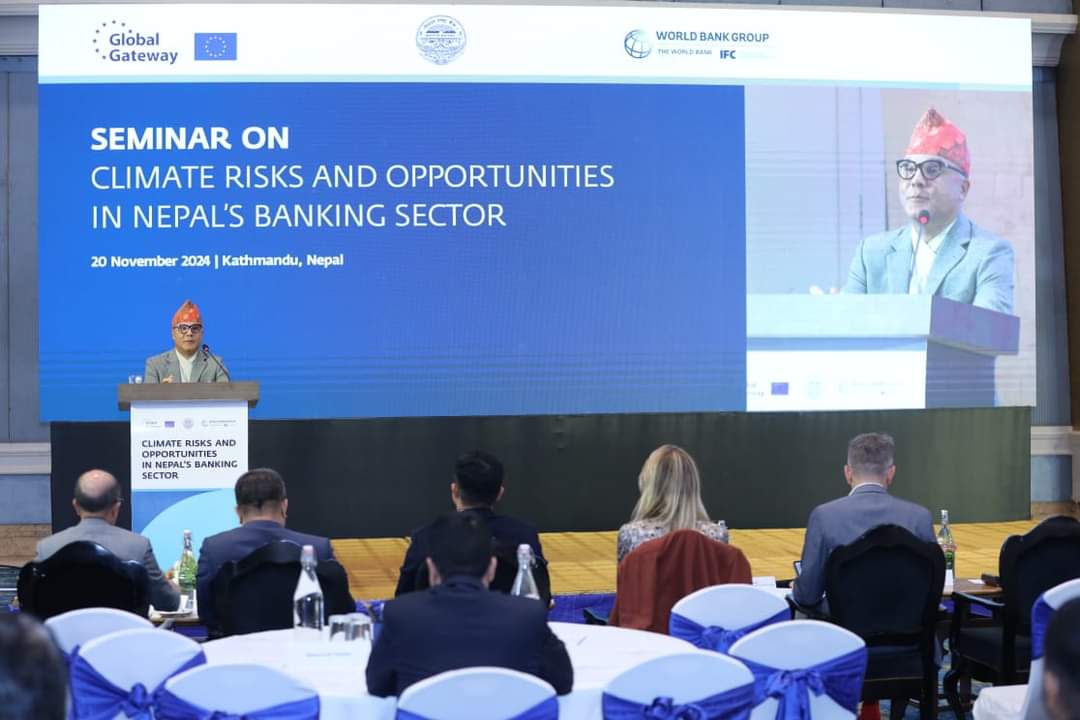The Nepal Rastra Bank (NRB) is collaborating with the World Bank Group to identify climate-related risks that could threaten financial stability and to guide Nepal’s banking sector in navigating the growing challenges posed by climate change. This initiative is backed by the European Union through the Accelerating Climate-Smart & Inclusive Infrastructure in South Asia (ACSIIS) program.
In a recent seminar organized by the International Finance Corporation (IFC), key stakeholders discussed the vulnerabilities and opportunities for Nepal’s financial sector in the face of climate change. The insights reveal significant challenges and opportunities:
1. Vulnerability to Climate-Induced Disasters:
Nepal’s banking sector loans are highly exposed to risks from climate-induced disasters like floods and droughts. These disasters not only impact communities but also threaten the financial viability of investments dependent on climate-sensitive sectors such as agriculture and hydropower.
2. Commitment to Climate Risk Management:
The Nepal Rastra Bank and financial institutions are showing strong commitment to improving climate risk management practices. This includes integrating climate considerations into lending policies and adopting robust risk assessment frameworks to safeguard the sector.
3. Green Finance as a Strategic Opportunity:
Investment in green finance is being positioned as a key solution. Such investments can promote sustainable development, drive economic growth, and enhance the resilience of the financial sector. Green finance includes funding for renewable energy projects, sustainable agriculture, and eco-friendly infrastructure.
This collaboration aims to build a resilient and sustainable banking system for Nepal, addressing both the immediate risks and long-term opportunities presented by climate change. Experts believe that these initiatives will unlock new avenues for economic growth while ensuring environmental sustainability.
With global organizations like the World Bank and the European Union supporting Nepal's climate journey, the country is taking critical steps towards a more sustainable financial future.